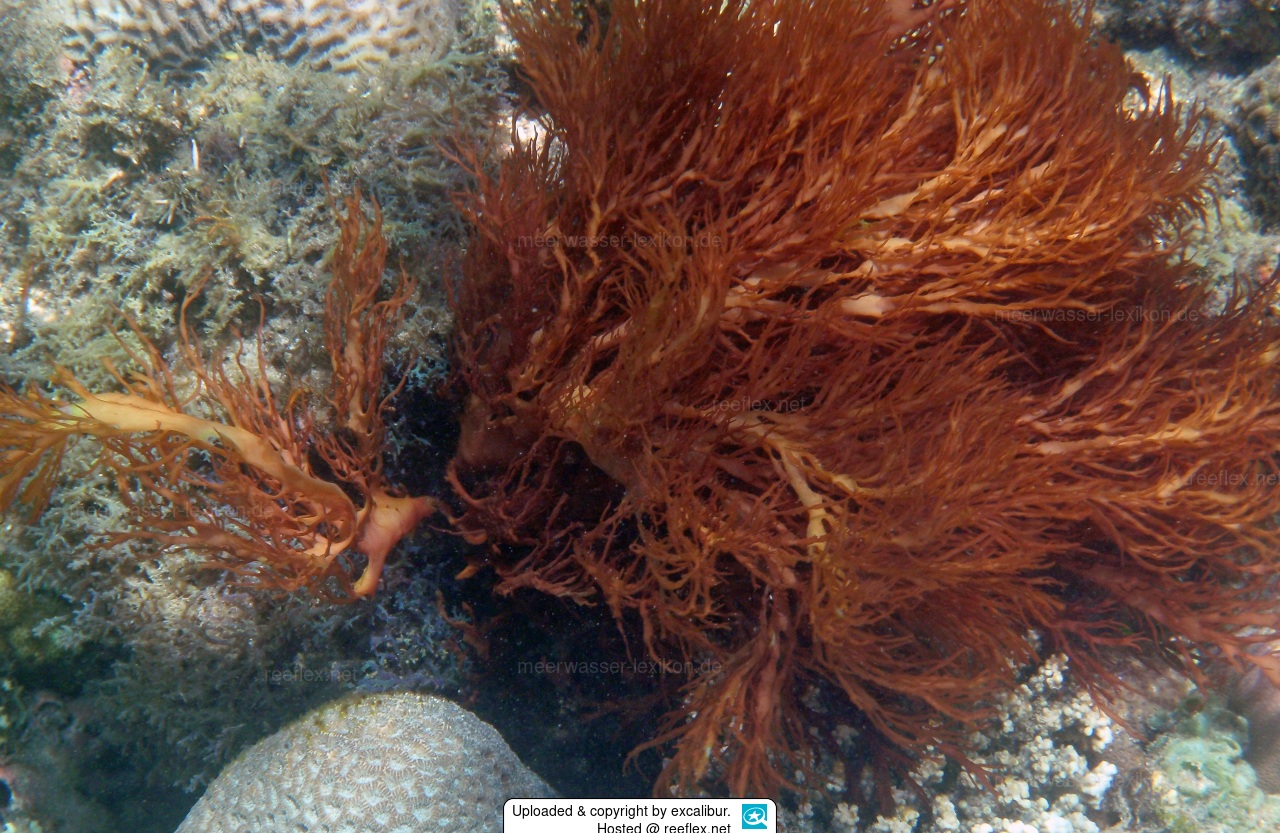Info
Milne-Edwards, 1857
Melithaea is a genus of corals in the family Melithaeidae. Members of the genus are commonly known as fan corals and are found in the tropical Indo-Pacific region
Recommendation - the coral should be kept in a species-specific tank.
Feeding
Gorgonians do not have zooxanthellae and do not live off light. Azooxanthellate gorgonians do not host symbiotic algae that produce nutrients and energy through photosynthesis.
The pumps should be switched off before feeding. In order for the gorgonian to survive in the aquarium, each individual polyp must be fed sufficiently, i.e. daily or 3-4 times a week. Without feeding, the gorgonian will not survive in the aquarium. The polyps need a certain amount of time to absorb the food (granules or dust food (Ultramarin, Cyclop Eeze) or frozen food (lobster eggs, mysis)). If shrimp and fish are present, they will try to steal the food, so it is essential to feed these cohabitants beforehand.
Newly introduced gorgonian sticks can be stimulated with a liquid food, e.g., PolypLab Polyp, to encourage the individual polyps to open. Only then can feeding be carried out.
The better the individual polyps take up the food provided, the better the growth and reproduction rates will be.
Azooxanthellate corals eat suspensions, marine snow, microplankton, and other organic matter, which is their natural food.
Members of this genus do not have the unicellular symbiotic algae Zooxanthellae in their tissues that many other corals do. Colonies vary in colour but tend to be shades of yellow, orange, red and brown
The World Register of Marine Species includes the following species in the genus:
Melithaea africana (Kükenthal, 1908)
Melithaea albitincta (Ridley, 1884)
Melithaea arborea (Kükenthal, 1908)
Melithaea caledonica Grasshoff, 1999
Melithaea densa (Kükenthal, 1908)
Melithaea esperi (Wright & Studer, 1889)
Melithaea flabellata (Gray, 1870)
Melithaea flabellifera (Kükenthal, 1908)
Melithaea flabellum (Thomson & Mackinnon, 1910)
Melithaea fragilis (Wright & Studer, 1889)
Melithaea laevis (Wright & Studer, 1889)
Melithaea linearis (Gray, 1870)
Melithaea mertoni (Kükenthal, 1909)
Melithaea modesta (Nutting, 1911)
Melithaea moluccana (Kükenthal, 1896)
Melithaea mutsu (Minobe, 1929)
Melithaea nodosa (Wright & Studer, 1889)
Melithaea occidentalis Duchassaing, 1870
Melithaea ochracea (Linnaeus, 1785)
Melithaea ornata (Thomson & Simpson, 1909)
Melithaea pulchella (Thomson & Simpson, 1909)
Melithaea rugosa (Wright & Studer, 1889)
Melithaea splendens (Nutting, 1911)
Melithaea squamat (Nutting, 1911)
Melithaea squamosa Nutting
Melithaea stormii (Studer, 1895)
Melithaea sulfurea (Studer, 1895)
Melithaea tenella (Dana, 1846)
Melithaea thomsoni (Broch, 1916)
Melithaea variabilis (Hickson, 1905)
Melithaea virgata (Verrill, 1846)
Melithaea is a genus of corals in the family Melithaeidae. Members of the genus are commonly known as fan corals and are found in the tropical Indo-Pacific region
Recommendation - the coral should be kept in a species-specific tank.
Feeding
Gorgonians do not have zooxanthellae and do not live off light. Azooxanthellate gorgonians do not host symbiotic algae that produce nutrients and energy through photosynthesis.
The pumps should be switched off before feeding. In order for the gorgonian to survive in the aquarium, each individual polyp must be fed sufficiently, i.e. daily or 3-4 times a week. Without feeding, the gorgonian will not survive in the aquarium. The polyps need a certain amount of time to absorb the food (granules or dust food (Ultramarin, Cyclop Eeze) or frozen food (lobster eggs, mysis)). If shrimp and fish are present, they will try to steal the food, so it is essential to feed these cohabitants beforehand.
Newly introduced gorgonian sticks can be stimulated with a liquid food, e.g., PolypLab Polyp, to encourage the individual polyps to open. Only then can feeding be carried out.
The better the individual polyps take up the food provided, the better the growth and reproduction rates will be.
Azooxanthellate corals eat suspensions, marine snow, microplankton, and other organic matter, which is their natural food.
Members of this genus do not have the unicellular symbiotic algae Zooxanthellae in their tissues that many other corals do. Colonies vary in colour but tend to be shades of yellow, orange, red and brown
The World Register of Marine Species includes the following species in the genus:
Melithaea africana (Kükenthal, 1908)
Melithaea albitincta (Ridley, 1884)
Melithaea arborea (Kükenthal, 1908)
Melithaea caledonica Grasshoff, 1999
Melithaea densa (Kükenthal, 1908)
Melithaea esperi (Wright & Studer, 1889)
Melithaea flabellata (Gray, 1870)
Melithaea flabellifera (Kükenthal, 1908)
Melithaea flabellum (Thomson & Mackinnon, 1910)
Melithaea fragilis (Wright & Studer, 1889)
Melithaea laevis (Wright & Studer, 1889)
Melithaea linearis (Gray, 1870)
Melithaea mertoni (Kükenthal, 1909)
Melithaea modesta (Nutting, 1911)
Melithaea moluccana (Kükenthal, 1896)
Melithaea mutsu (Minobe, 1929)
Melithaea nodosa (Wright & Studer, 1889)
Melithaea occidentalis Duchassaing, 1870
Melithaea ochracea (Linnaeus, 1785)
Melithaea ornata (Thomson & Simpson, 1909)
Melithaea pulchella (Thomson & Simpson, 1909)
Melithaea rugosa (Wright & Studer, 1889)
Melithaea splendens (Nutting, 1911)
Melithaea squamat (Nutting, 1911)
Melithaea squamosa Nutting
Melithaea stormii (Studer, 1895)
Melithaea sulfurea (Studer, 1895)
Melithaea tenella (Dana, 1846)
Melithaea thomsoni (Broch, 1916)
Melithaea variabilis (Hickson, 1905)
Melithaea virgata (Verrill, 1846)







 excalibur
excalibur





















